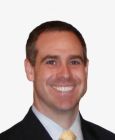
Chronic Pain
Treating the Person not the Part
Treating chronic pain without opiates
Posted February 9, 2015
Aristotle said, "The whole is greater than the sum of its parts." This sentiment certainly applies when working with people in chronic pain. It makes perfect sense that when a body part is injured or in pain, that part is treated.
But what if someone has a chronic pain condition? He or she can become consumed with that body part to the point where that part becomes bigger than the person. This feeling can be exacerbated by seeing a specialist who only treats the injured or painful area. The current standard of care doesn’t take into account all of the other aspects of the person affected by the chronic pain condition.
It is important to understand that pain is not just a physical sensation; it is also emotional, mental, and even spiritual. That is why it is essential to treat the person and not the part. Chronic pain can be invasive in someone's personal, family, vocational, financial and social life. Just treating the pain and not the person misses the point and minimizes the full extent of the problem.
Too often I hear chronic pain patients talk about being treated like addicts, drug seekers, fakers, whiners or as someone with a borderline personality disorder or hypochondria. Rarely are they treated as people. Simply identifying with an individual with chronic pain, rather than talking at them, makes all of the difference and can be a great start to a therapeutic alliance. We are human beings after all. We are not compartmentalized and therefore treatment for chronic pain shouldn’t be either. Treatment needs to be integrated and offered by a team of specialists that can serve the whole person and not one part. Chronic pain patients should seek out treatment professionals who can address all the ways pain affects every aspect of their health and life.

